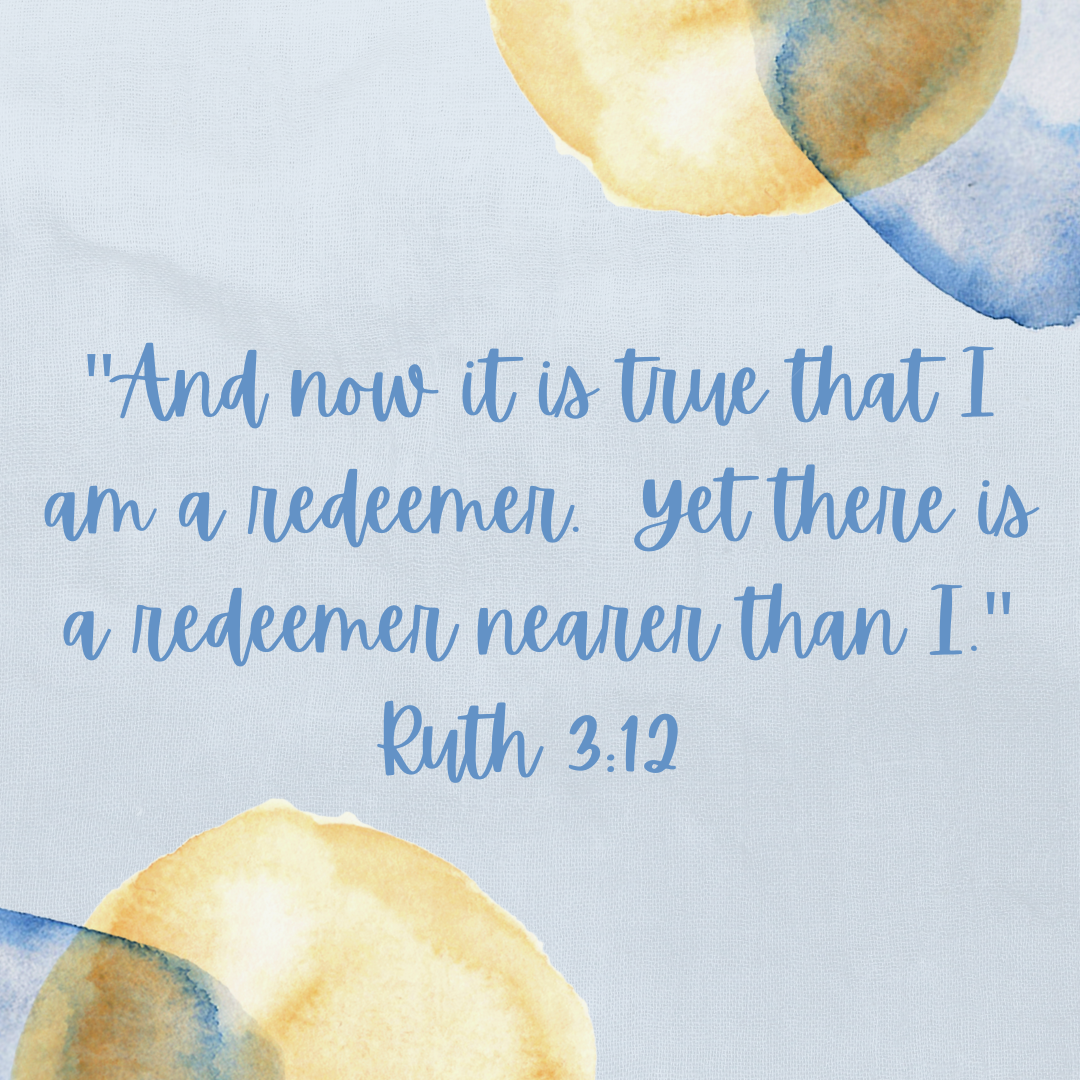Our True Redeemer Is Waiting On Us
I thought I needed to be perfect.
Perfectionist thinking had been engrained in me since childhood. I allowed it to define who I was as I got older and, as a newly married bride the pressure of perfection consumed me. I thought that for me to show love and be loved, I needed to be perfect. Mistakes were not allowed. I was enslaved to my perfectionism the same way Ruth was enslaved to her widowhood.
I struggled with my enslavement until I understood the true redeeming love of God.
We see God’s character of redeeming love shine through the way Boaz responds to Ruth’s unconventional marriage proposal.
Ruth and her mother-in-law, Naomi, were left destitute after the passing of both their husbands. When Naomi and Ruth returned to Judah from Moab, they lived in poverty. Naomi realizes the estate of her dead husband had been redeemed by Boaz, Ruth’s employer (Ruth 2:20; 4:16). When Naomi realized this, she saw the opportunity they had to be saved (Ruth 3:1-2). Boaz was not only a man that could provide for them, but also was a man of kindness, gentleness, and compassion.
A kinsman redeemer is one who repurchases property that has been sold due to hardship. Naomi sees Boaz as not only the man to redeem her land but also the man to redeem Ruth by purchasing her along with his kinsman’s property (Ruth 2:20; 3:9-13; 4:6-14). But Boaz introduces a problem to Ruth she had not seen coming, he was not first in line (Ruth 3:12). There was another man that had to either accept the responsibility of being Ruth’s kinsman redeemer or decline the offer and allow the next relative in line the opportunity (Deuteronomy 25:15).
Boaz’s integrity insisted that he be honest and give the other man the first opportunity to act as Ruth’s kinsman redeemer, regardless of how much he wanted to take on this responsibility of taking her as his wife. Boaz makes an oath to Ruth that if this other man does not want to be her redeemer, he promises he will. Boaz says, “as the Lord lives,” he would take Ruth as his wife and breaking it would mean blasphemy (Ruth 3:13).
Our God loves us just as Boaz loved Ruth, with patience, provision, wisdom, goodness, mercy, and graciousness. As I understood the redeeming love God has for me, I let go of my perfectionism. I grasped the truth that God’s loyal love is no ordinary love and rested in this love despite my failures. The Hebrew word for this love is hesed. Hesed is a stubborn, costly, sacrificial, voluntary love. Hesed made it possible for God to send His son to the cross as our Redeemer. As in Boaz and Ruth’s lives, God’s hesed has the power to transform our thinking and actions so we may respond in faithful love. Jesus gives us the ability to respond to Him and others in love that is faithful, committed, patient, and loyal.
Boaz made the loving choice to be Ruth’s redeemer and Jesus Christ made the choice to be our saving Redeemer. Just like Ruth needed only one man to be her kinsman redeemer, God’s people only needed Jesus Christ who was willing and able to redeem us.
Digging Deeper:
Read Ruth 3-4:12.
How is Jesus your saving Redeemer? How have you seen Jesus’ character as He has rescued you from your difficulties?
Closing Thoughts:
God’s kindness and loyal love was shown through Boaz as he responded to Ruth. Without the Holy Spirit placing these characteristics in us, we would only focus on the pain around us. This lavish love of God does not extinguish our pain, it makes us purposeful.
Naomi and Ruth’s pain was still there. They had still suffered the loss of their family and were left destitute, but now they live out the life they were designed to live. God had a plan, and He was transforming Boaz, Ruth, and Naomi so that this plan could be fulfilled. As we trust God’s love, we can live out God’s will in our lives.
The Lord is our Redeemer and formed us in the womb. He created all things and stretched out the earth by Himself (Isaiah 44:24). God made us in His perfect image and His perfect character establishes His people. Jesus gave his life as a ransom for many (Mark 10:45).
Boaz then tells Ruth to stay until morning (Ruth 3:13). He wants to keep her virtue intact and show her he is committed to her. He wants to reassure her that he will patiently wait for the response of the other man and will fulfill his promise when the time comes.
